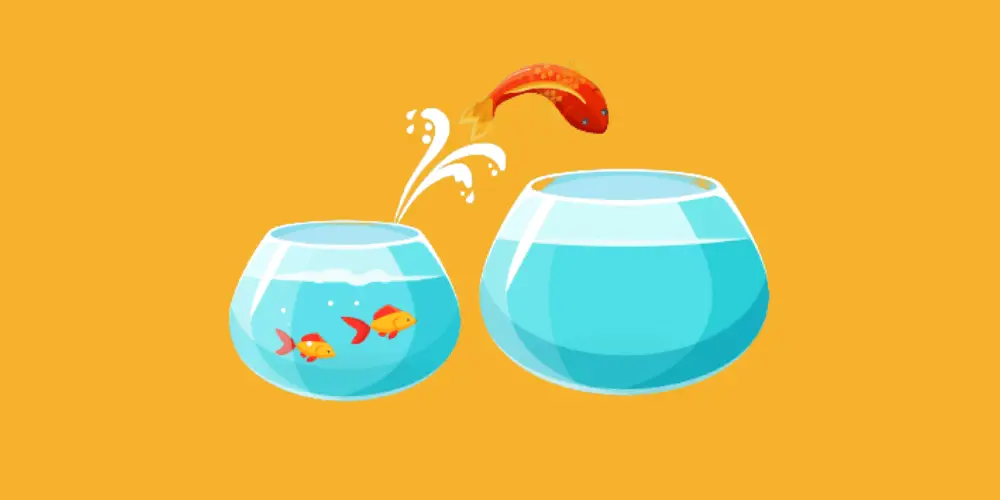If you are looking for a way to soften water so that it is safe for use in your aquarium, then this blog post will be of some help. We will cover the different types of water softeners and how they work, as well as what type of system is best suited for your needs.

The first thing many people ask when considering which type of water softener to purchase is whether or not they want to install an on-site or off-site system. On-site systems require plumbing directly into the unit while off-site systems can plug into any standard outlet in your home.
Each one has its own pros and cons but if you plan on moving anytime soon it may be wise to go with an off-site system because you won’t have to worry about your new home is compatible.
On-site systems are much more efficient than off-site water softeners because they use lower pressure and can remove hardness from the water at a faster rate. Because of this, on-site models tend to be larger in size but if you don’t mind having an obtrusive box sitting next to your water heater this shouldn’t be a problem.
Off-site models tend to require more maintenance and are typically not as efficient at removing minerals from the water, but they can usually fit in with any type of décor and don’t take up space around the house like on-site systems do.
How to lower the hardness in my aquarium?
If you’ve ever taken a close look at your aquarium, you might have noticed that the water appears to be cloudier than normal. In some cases, this can be caused by high levels of hardness in the water.
If your aquarium has high levels of hardness, there are steps you can take to lower them and improve the overall appearance of your tank.
The first step, regardless of whether or not you want to soften the water in your tank, is to determine whether or not it actually has high levels of hardness
To do this, start by filling your tank with water and measuring the pH level. If the number is lower than 7, then you probably don’t have high levels of hardness in your aquarium. However, if it reaches above 8 then you likely need to remove some minerals from the water before adding new fish or plants.
How to remove the hardness of water?
Water hardness is caused by minerals like calcium and magnesium, and it can make your water taste and smell bad, create spots on dishes and fixtures, and even cause plumbing problems.
So how can you remove the hardness of water? There are a few different options, so let’s take a look at them.
The first option is to install a water softener. A water softener uses special resin beads to remove the minerals from the water, so it becomes softened. The downside to this option is that it can be expensive to install, and you still might not remove all the minerals from the water
Another option is to pass your water through a filter that removes calcium and magnesium. These filters are much less expensive than a softener, but you have to replace them frequently, which will add up over time
You could also simply boil your water for 10 minutes or so before using it, but this often takes out other beneficial minerals as well.
How do you soften water?
So now that you know why you need to soften your water in the first place, let’s talk about how you’re going to do it.
There are three primary options for softening hard water:
- installing an on-site system,
- installing an off-site system or
- filtering it with a system that uses ion-exchange resins.
An on-site system is one that you install at your home, while an off-site system is installed in the plumbing of your house but not directly at the point where the water goes into your home.
First, determine what size unit will be necessary for your family’s needs (this should be easy if you’ve already figured out whether or not there are any mineral problems in the water), then purchase it.
Be sure to hire a plumber to install your unit, or install it yourself if you feel that you’re up to the task.
Once your system is installed, you should be able to enjoy soft water without mineral buildup or spotting on dishes and fixtures
However, keep in mind that you will have to replace some filters occasionally – these are typically inexpensive so don’t worry too much about it.
Is hard water bad for aquariums?
There’s a lot of debate about whether or not hard water is bad for aquariums. Some people say that it’s more difficult to maintain an aquarium in harder water, while others believe that the minerals in hard water can actually be beneficial for fish.
So what’s the truth? Is hard water bad for aquariums? Let’s take a closer look.
In general, hard water can be harmful to certain types of fish, but there are ways to mitigate its effects. As I mentioned above, hard water has minerals in it that are not harmful to fish. However, if you have too much of these minerals in your aquarium, they can cause problems for the fish because they will build up over time and create a certain type of toxic environment.
These types of water are often called “hard” since the level of mineralization is so high. The minerals do have some positive effects on fish health, but even this benefit is only seen at lower levels.
There are two primary forms of hard water:
- temporary or
- permanent.
Temporary hard water is caused by calcium carbonate precipitates falling out of the solution when the pH levels drop too low (very acidic). This type of hard water typically lasts approximately 24 hours.
Permanent hard water contains calcium carbonate in the full-bonded crystal form of calcite, which does not precipitate out when the pH levels drop. Permanent hard water occurs when there is a high level of dissolved minerals in drinking water.
Final Thoughts
In conclusion, hard water is more difficult to work with, but it’s certainly not impossible.
As you can see, there are many options for softening hard water, including installing an on-site system or filtering it with a system that uses ion-exchange resins.
If you have temporary hard water, you can simply wait for the minerals to fall out of the solution at acidic levels. If you have permanent hard water, your best bet is to remove the minerals through either filtration or ion exchange.
In general, hard water can be harmful to certain types of fish, but it can also have some positive effects on fish health

